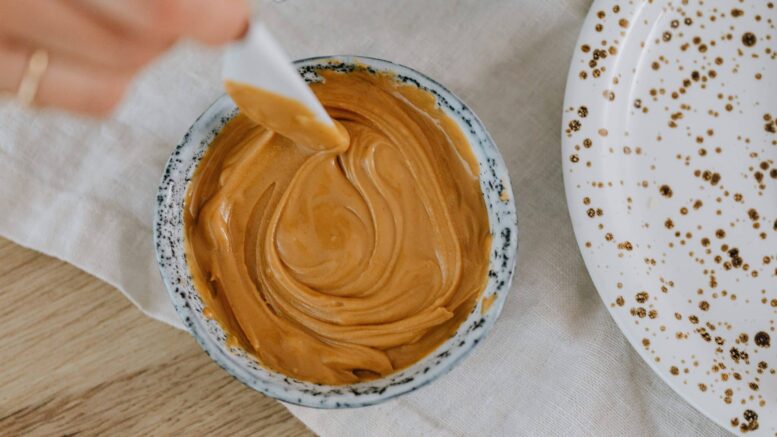Is Peanut Butter Good for Diabetes? – Overview
Diabetes mellitus, more commonly referred to as just diabetes, is a group of metabolic disorders that affect insulin production and use.
It is one of the most common diseases worldwide: according to WHO, in 2014, 8.5% of adults aged 18 years and older had diabetes.
The cornerstone of its management is adequate blood sugar control.
This helps us to slow down or avoid undesired medical complications. Medications and diet are equally important in this process.
Peanut butter is a popular snack worldwide. Some studies have revealed its positive effects on diabetics, particularly for type 2 diabetes.
Is the above statement true? Is it a safe product for diabetics? And can this product help to maintain a healthier diet? Let’s find out.
Peanut butter and blood sugar
When we discuss products in the scope of a diabetic diet the first things that come to our mind are Glycemic Index (GI) and Glycemic Load. The Glycemic Index (GL) represents a 100-point scale.
It ranks foods according to how blood sugar changes two hours after consumption. Generally, products fall into 3 categories: high GI (>70), medium GI (56-69), and low GI (<55).
High Glycemic Index products digest quickly and release sugar into the bloodstream really fast. This causes a rapid increase in blood sugar.
Surges in sugar and insulin levels are harmful to our bodies and may even contribute to the development of type 2 diabetes.
White bread, oatmeal, doughnuts, and honey are examples of food with high GI. In contrast, peanuts have a very low GI score of just 14, lower than broccoli and cucumber.
The glycemic load (GL) in turn represents the number of carbohydrates (in grams) in a serving of food. Since peanut butter is low in carbohydrates, glycemic GL is low as well.
It seems we found perfect food for diabetics. Or did we?
Things to consider:
Calories: As we already mentioned, peanut butter is low in carbohydrates, but it is an extremely caloric product (about 600 calories per 100 g).
Consuming peanut butter in large amounts could result in weight gain. Obesity can both contribute to the onset of diabetes and worsen the management of the already existing condition.
Apart from that, manufacturers often add sugar to peanut butter. This makes the product more caloric and rises GI and GL. So always make sure to check the label to choose the right product for you.
Omega-6 fatty acids: You might have heard about omega-3 fatty acids and their benefits in terms of inflammation reduction. Omega-6 fatty acids do quite an opposite of that. Peanut butter is relatively rich in omega-6 fatty acids.
Furthermore, they may alter the balance of fatty acids and according to studies: “An Increase in the Omega-6/Omega-3 Fatty Acid Ratio Increases the Risk for Obesity”.[1]
Allergies: Various studies estimate that about 2% of children may have a peanut allergy. However, the true prevalence of food allergies is hard to determine.
People with a family history of asthma, allergy, or eczema, may be at increased risk.
Dietitians suggest that almond and almond oil, as well as sunflower seeds and sunflower oil, may be good alternatives to peanuts and peanut butter.
Research around peanut butter
Keep in mind, that most of the studies listed here were conducted on small groups of humans and were not focused on diabetics. So much is yet to be determined.
Peanuts vs Candy
In 2009 a randomized study was conducted on 11 men da 14 women. The goal was to study the effects of snacking based on fast-acting carbohydrates and protein (peanuts).
Result: “Two weeks of snacking based on peanuts does not cause the same negative metabolic effects as an isocaloric diet in which the snacking is based on short-acting carbohydrates in the form of candy in non-obese healthy subjects.” [2]
Effect of Peanut Butter on the Glycemic Response
A pilot study involving 16 healthy adults indicated that supplementation with 2 tablespoons of peanut butter attenuates glucose spikes and overall glycemic response to high GI meal and may be a beneficial strategy to prevent undesirable blood glucose elevations. [3]
Magnesium
Peanuts are a rich source of magnesium and fiber. The studies suggest that high magnesium content present in fiber can improve insulin sensitivity and offer protection from type 2 diabetes. [4]
Takeaway
Peanut butter is a nutritious product with plenty of health benefits. There is no doubt, that in low quantities it is not harmful to diabetics.
The greatest concern is its high-calorie content, so make sure to eat in moderate amounts and combine peanut butter with low-caloric food.
The lack of extensive studies concentrated on people with diabetes indicates that the advantages of a diabetic diet are yet to be determined.
References
[1] https://www.ncbi.nlm.nih.gov/pmc/articles/PMC4808858/
[2] https://www.tandfonline.com/doi/full/10.1080/00365510902912754
[3] https://www.tandfonline.com/doi/abs/10.1080/07315724.2018.1519404?journalCode=uacn20&
[4] https://www.ncbi.nlm.nih.gov/pmc/articles/PMC4549665/
https://www.who.int/news-room/fact-sheets/detail/diabetes
https://peanut-institute.com/
Are Mangoes Good for Diabetics

As a nutritionist, I research, find and experiment with recipes, natural diets and meal plans for weight loss, bodybuilding, and detoxing.
